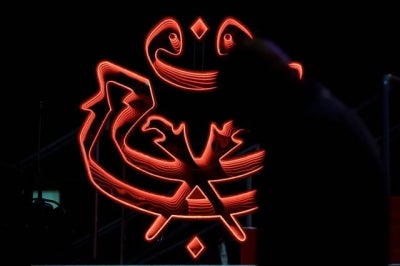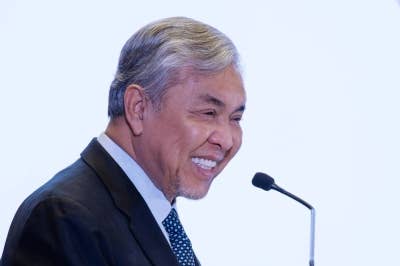A Ramadan Dilemma: Peptic ulcer
AINUL FADLINA MOHD NADZIR
The holy month of Ramadan is looked forward by Muslims around the world, often with joy and anticipation. Medical conditions such as peptic ulcer, however, presents a dilemma for those suffering from it and may be a hindrance for them to carry out fasting throughout Ramadan.
Unlike typical gastritis, peptic ulcer happens when the inner layer of the abdominal wall or the opening towards the small intestine, the duodenum, is wounded. If left untreated, this condition may lead to bleeding and more serious complications.
Symptoms of peptic ulcer include abdominal pain, heartburn, flatulence and vomiting. In more severe cases, one may vomit blood or pass black stool. If this occurs, patients should seek immediate treatment at the emergency department to avoid further harm.
Under normal circumstances, there is a balance between digestive acid secretion and the mucosa lining protection system in the stomach. Any disruption to this balance for instance, the thinning of stomach protective layer or excessive acid secretion can lead to stomach wall injury.
Common factors causing the imbalance include Helicobacter Pylori infection, long term use of certain painkillers and excessive alcohol or caffeine consumption.
In cases of mild to moderate peptic ulcer, patients may still be able to fast through proper eating habits. However, in more serious cases, patients may need medications to get through the day. Doctors may also advise patients to break their fast if it might incur further harm to them.
Medication compliance according to doctor’s advice in controlling peptic ulcer symptoms is imperative. Proton pump inhibitor medication group such as omeprazole and pantoprazole are among the medication commonly used to treat peptic ulcer. They help to relieve the burning stomach pain by reducing stomach acid secretion.
Patients are advised to consult doctors for the most appropriate treatment for their symptoms based on the severity of their condition. Patients will also need to avoid food and medications which may exacerbate the condition such as spicy food, some painkillers and caffeine. Unhealthy eating habits during fast breaking can also worsen patients’ peptic ulcer condition.
Below are examples of good dietary habits that can be practiced during fasting months:
- Patients are advised to delay their “sahur” (pre-dawn breakfast) and hasten to break fast once the sun has set (Maghrib). It is also encouraged to break fast with easily digestible foods such as dates, fruits, plain water and “kuih” for instant energy. This ensure a gentler introduction to food for the stomach to process after a long period of fasting and in turn will avoid sudden or rapid secretion of gastric juice.
- Avoid eating hot, spicy and acidic food as it will cause irritation to the stomach wall and worsen patients’ peptic ulcer.
- Avoid beverage with high caffeine contents such as coffee and tea.
- Reduce consumption of high fat content food such as fried food.
- Patients with symptoms of peptic ulcer are also encouraged to do Helicobacter Pylori screening test prior to Ramadan so that early intervention and treatment can take place if necessary.
- Patients who experience severe pain and discomfort during the day are encouraged to break their fast to avoid any serious complication as it is permissible in Islam. Patients just need to pay back for the missed days.
Even though many may have the perception that fasting increased risk of peptic ulcer symptoms, we need to remember to eat in moderation when breaking fast as well as during Aildilfitri.
Overeating can also aggravate peptic ulcer conditions.
Patients are advised to consult a doctor to determine if they are physically fit to fast during Ramadan. It is important that patients continue taking medication as prescribed and create management plans to ensure a healthy and spiritually uplifting Ramadan.
For any further enquiries on medications, you can always call the National Pharmacy Call Centre (NPCC) at 1-800-88-6722 (Monday-Friday, from 8am to 5pm).
Ainul Fadlina Mohd Nadzir is a pharmacist at Hospital Serdang, Selangor.
Download Sinar Daily application.Click Here!














